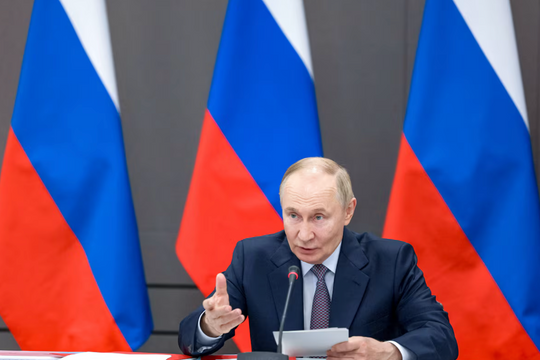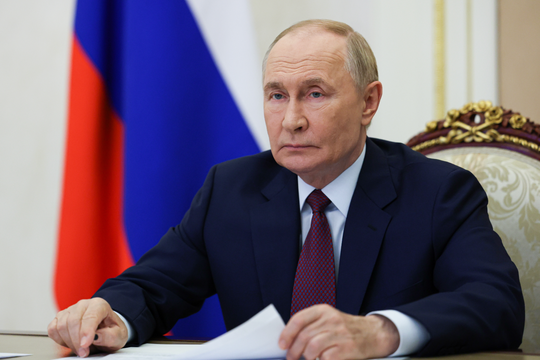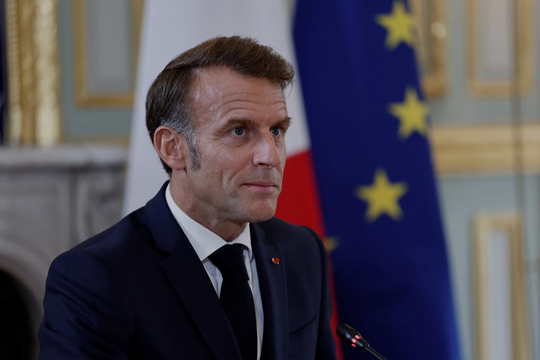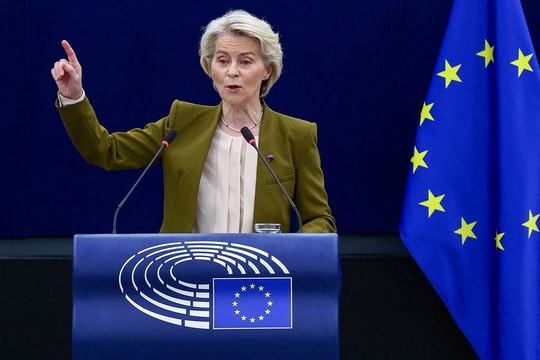The shaky 'tripod' situation has divided Europe in the face of the Russia-Ukraine crisis.
A tense atmosphere is engulfing Europe due to concerns about Russia's military deployment to the Ukrainian border, but deep divisions and contradictions within European countries make it impossible for the West to come up with a unified response.
NATO and European officials have repeatedly stressed their commitment to deterring Russia from invading Ukraine and to punish Moscow if it does. But there is no consensus on how best to deter Russia or what steps to take in the event of an attack.
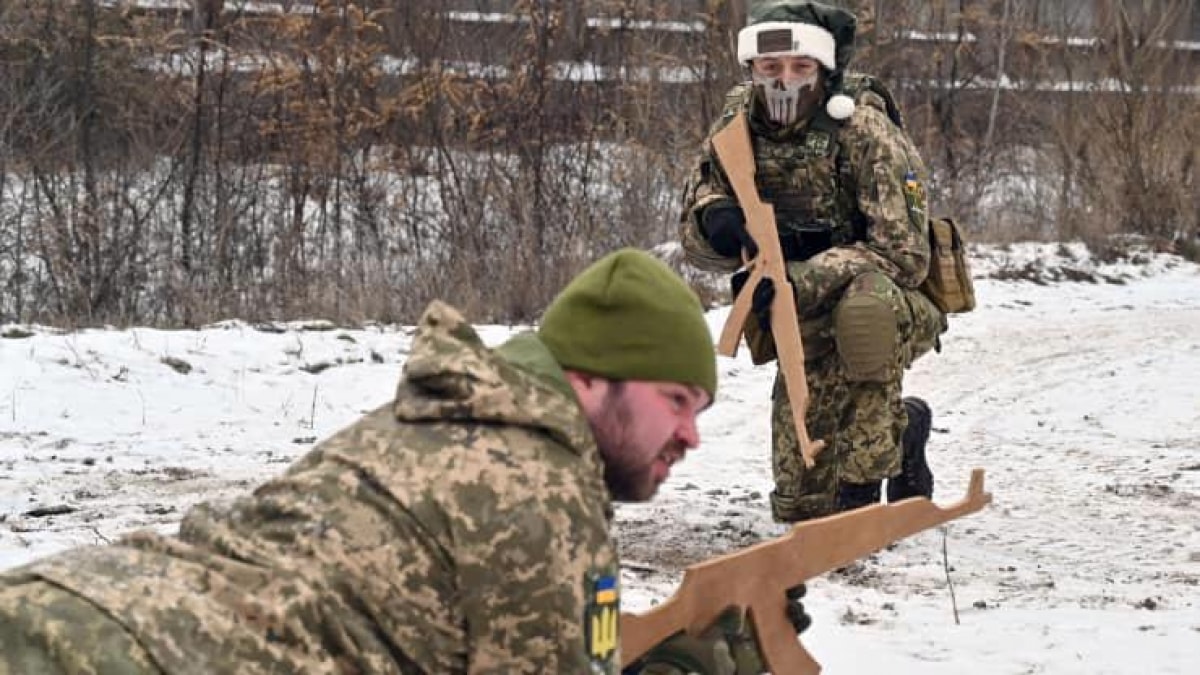 |
| Ukrainian soldiers during a drill near Kiev in December 2021. Photo: Getty/CNBC. |
The trio of Germany, France and England are divided because of their own calculations.
The three biggest European powers, Germany, France and the UK, are pursuing different, even contradictory, approaches due to their political contexts. Other countries also have different approaches depending on their geographical distance from Russia, their dependence on Russian gas or historical reasons.
US President Biden expressed frustration when he referred to divisions within NATO last week, suggesting that the response to Russia's actions could be complicated by "differences" within the military alliance.
The differences have never been more evident than they are now, despite growing concerns that Russia could attack Ukraine. A prime example of the conflict between European powers was when Royal Air Force planes delivering anti-tank weapons to Ukraine were forced to fly around Germany, then divert over the North Sea and Denmark, adding several hours to the journey.Britain, which has been a strong supporter of arming Ukraine, is unhappy that its planes have had to bypass Germany, said Tobias Ellwood, former British defence secretary and chairman of the House of Commons defence committee. “To avoid a confrontation and to avoid embarrassing Germany, we have not made any requests regarding flights. But Berlin’s decision shows the absence of a coordinated effort within NATO to help a NATO ally and a European ally,” he noted. “Russia is watching NATO’s every move and my concern is that they will push their actions further.”
Germany’s decision not to grant Estonia re-export licenses for supplying German-made howitzers to Ukraine has highlighted the unique position within Europe on supplying weapons to Ukraine, with German officials citing the country’s decades-long policy of not arming parties to conflicts, rooted in the lessons of World War II.
Furthermore, Berlin also opposes US calls to impose sanctions on Nord Stream 2 – a gas pipeline from Russia to Germany through the Baltic Sea.
Berlin’s stance has been criticized by Britain, Estonia and Ukraine. In a tweet posted over the weekend, Ukrainian Foreign Minister Dmytro Kuleba said Germany’s decision was “disappointing.”
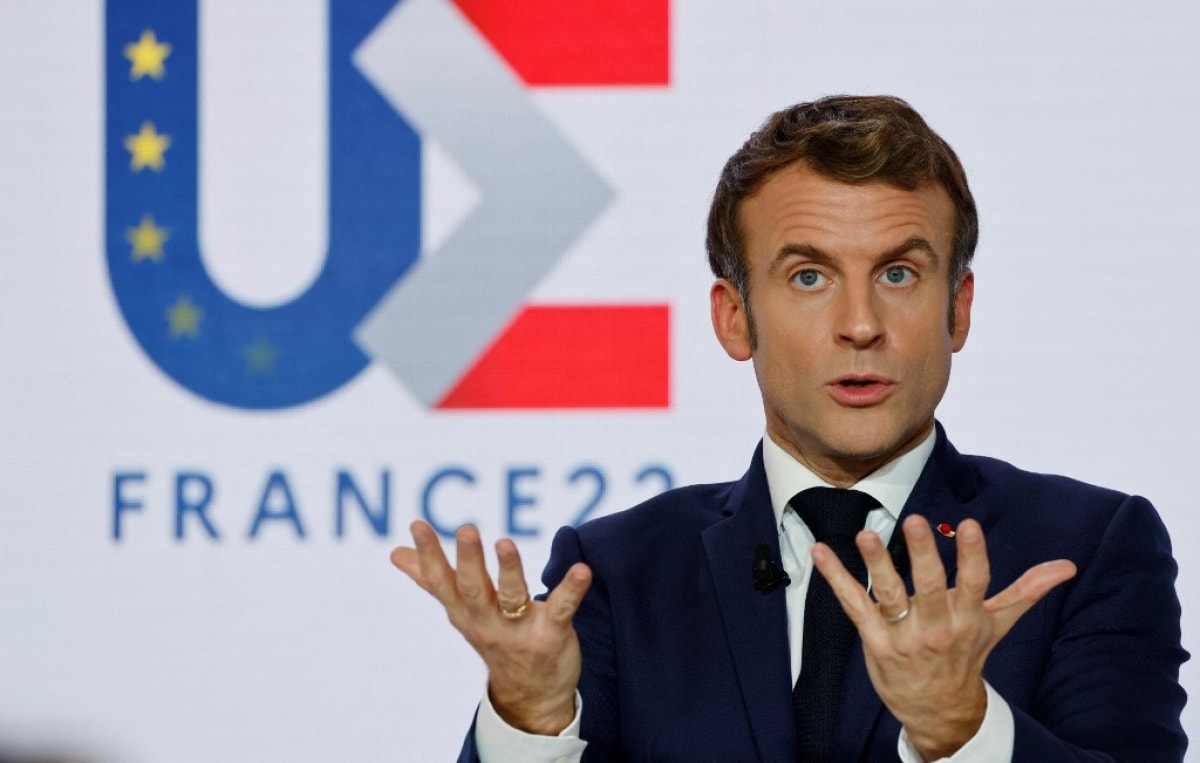 |
| French Prime Minister Macron. Photo: Times of Israel. |
Unlike Germany, France is seen as using the Ukraine crisis to advance its own ambitions for an EU-led security framework that could undermine NATO. In his speech to the European Parliament, French President Emmanuel Macron urged the EU to start its own dialogue with Moscow to ease tensions. But that proposal is likely to clash with the US-led diplomacy that has so far dominated Western efforts to ease tensions.
As France prepares for crucial elections in April 2022, Mr Macron has domestic political reasons to promote his role as a key player in Europe’s engagement with Russia, said Evelyn Farkas, a former US deputy assistant secretary of defense. But the speech appeared to highlight a perception that Europe is facing its most serious security threat since World War II.
US officials have warned that divisions within the NATO alliance could lead some countries to be drawn towards Russia, and said Washington is working hard to narrow the differences. “One of Russia’s long-term goals is to try to sow division within and between our allies. We will not allow them to do that,” US Secretary of State Antony Blinken said during a visit to Kiev last week.
In addition to the EU’s internal conflicts, the different interests of individual European countries have also pushed the continent further away from the US. Eastern European and Baltic countries on Russia’s flank have always felt insecure about every military move by Moscow and want to seek a strong US-led response to the threats. They worry that Western European allies may be pursuing an independent path, which risks weakening the US’s security commitment.
Elsewhere, dependence on Russian gas has made them reluctant to pursue a tougher approach. The global gas crisis has sent energy prices soaring in Europe, and many governments worry that rising gas prices in the winter will erode their popularity with voters.
“The difference between Eastern Europe and Western Europe is clear,” said Cathryn Clüver Ashbrook, director of the German Council on Foreign Relations. “Many Western European countries have been downplaying the threat from Russia for a long time.”
The most notable thing, according to expert Cathryn Clüver Ashbrook, is the division within the German government – a newly formed government with little political experience. Here, the parties in the ruling coalition have been unable to present a unified vision for the Ukraine crisis.
Chancellor Olaf Scholz's Social Democratic Party is said to have good relations with Russia, while his Foreign Minister, Annalena Baerbock of the Green Party, has pursued a tough stance towards Moscow.
MP Ellwood, a senior member of the British Parliament, said that President Putin could hardly have chosen a more appropriate time to challenge Europe. The British government is facing a major crisis as several senior figures in Prime Minister Boris Johnson's administration have been accused of violating anti-Covid-19 regulations. France is preparing to enter an important election, while the new German government is still struggling to find its footing after 16 years in power under Angela Merkel.
“Mr. Putin is well aware that the main pillars of Europe are France, Germany and the UK. If these three countries unite, other countries in Europe will follow their lead. If these three countries are divided, there will be no leadership, no coordination and no unity in Europe,” expert Ellwood noted./.



